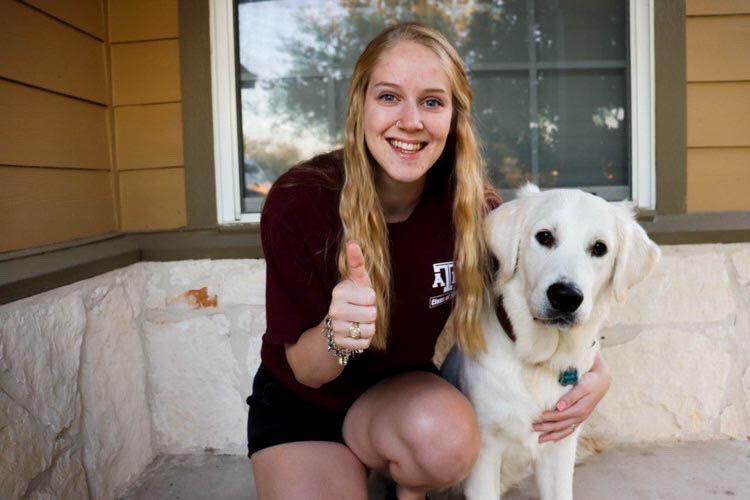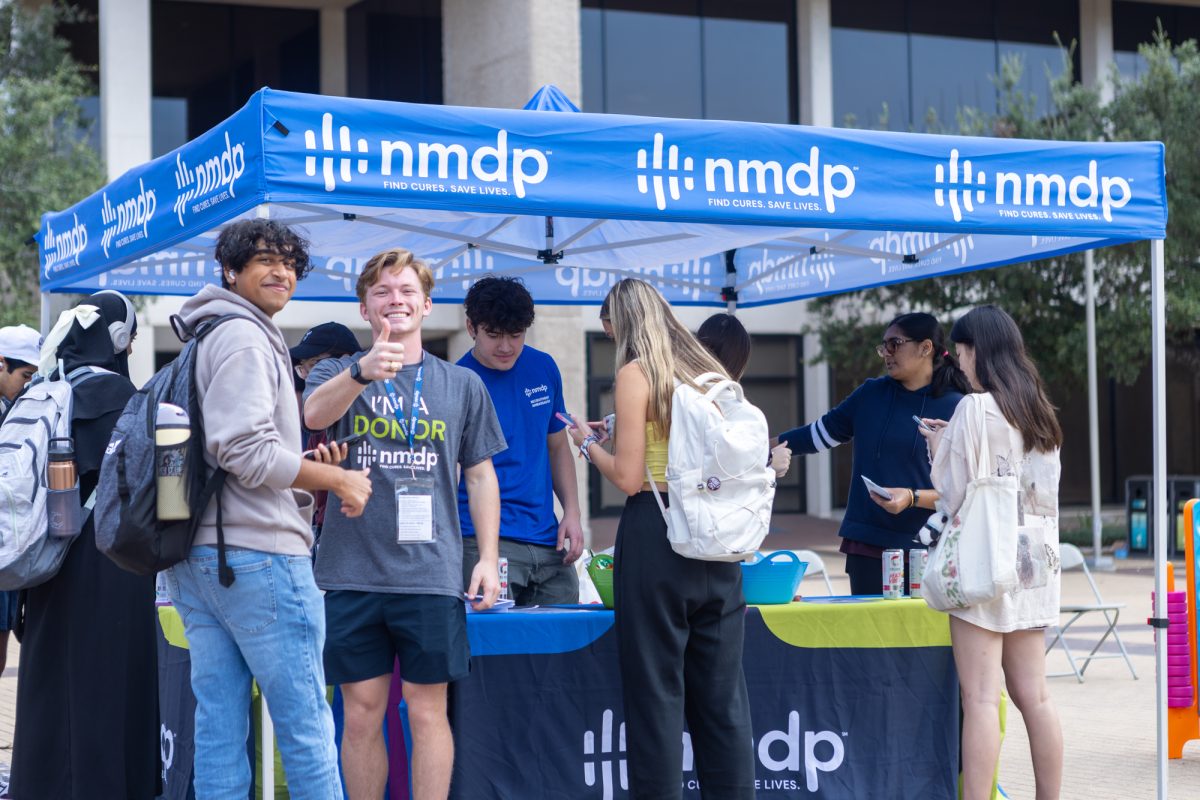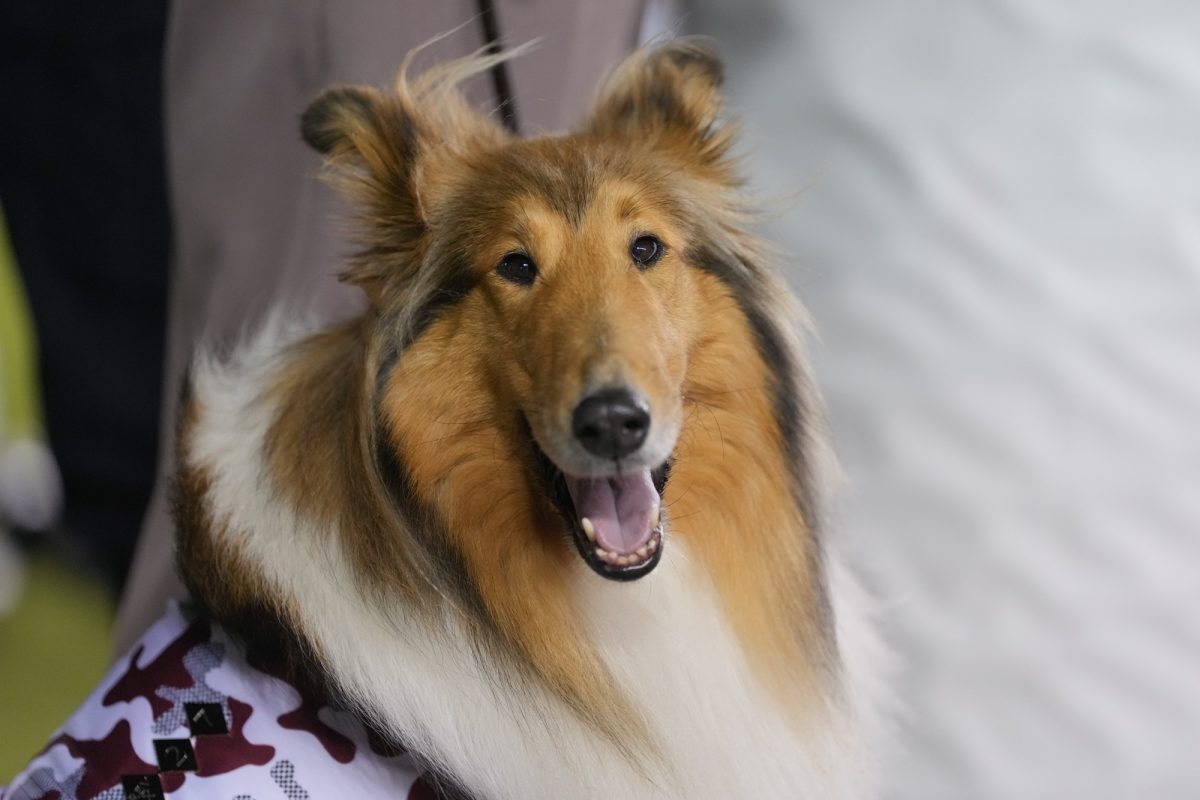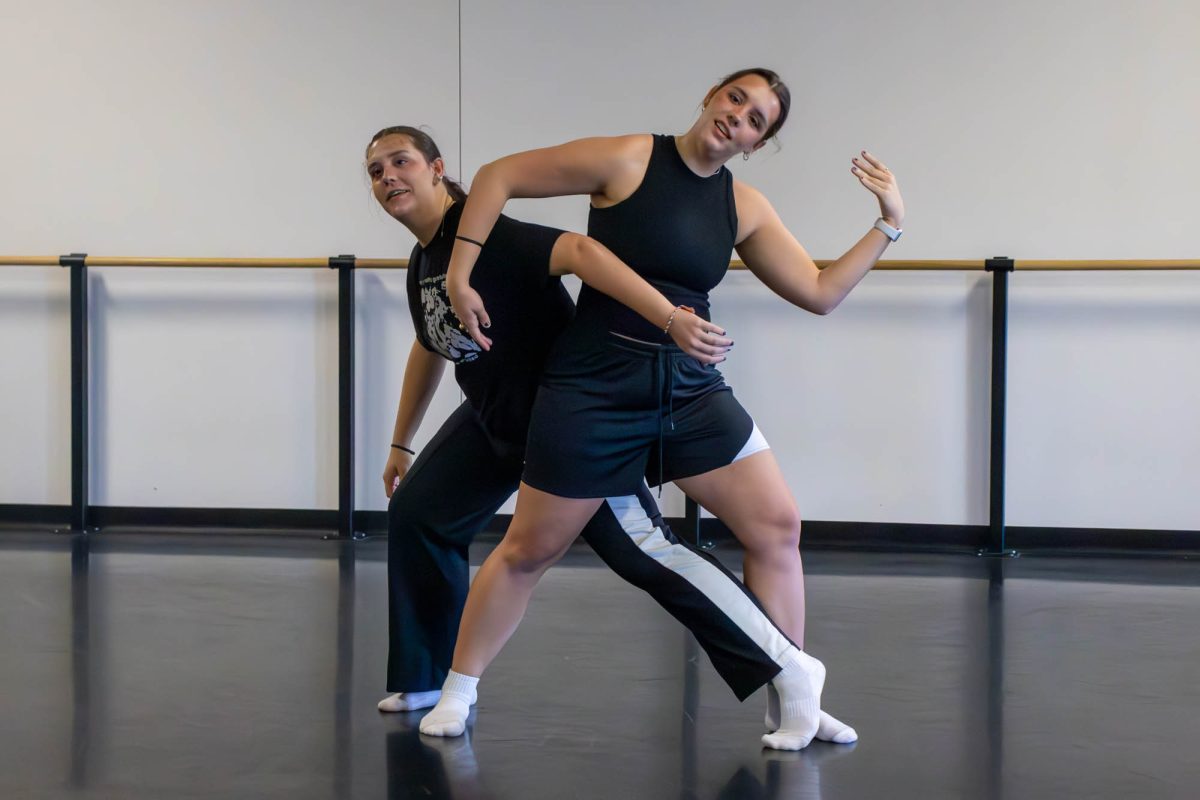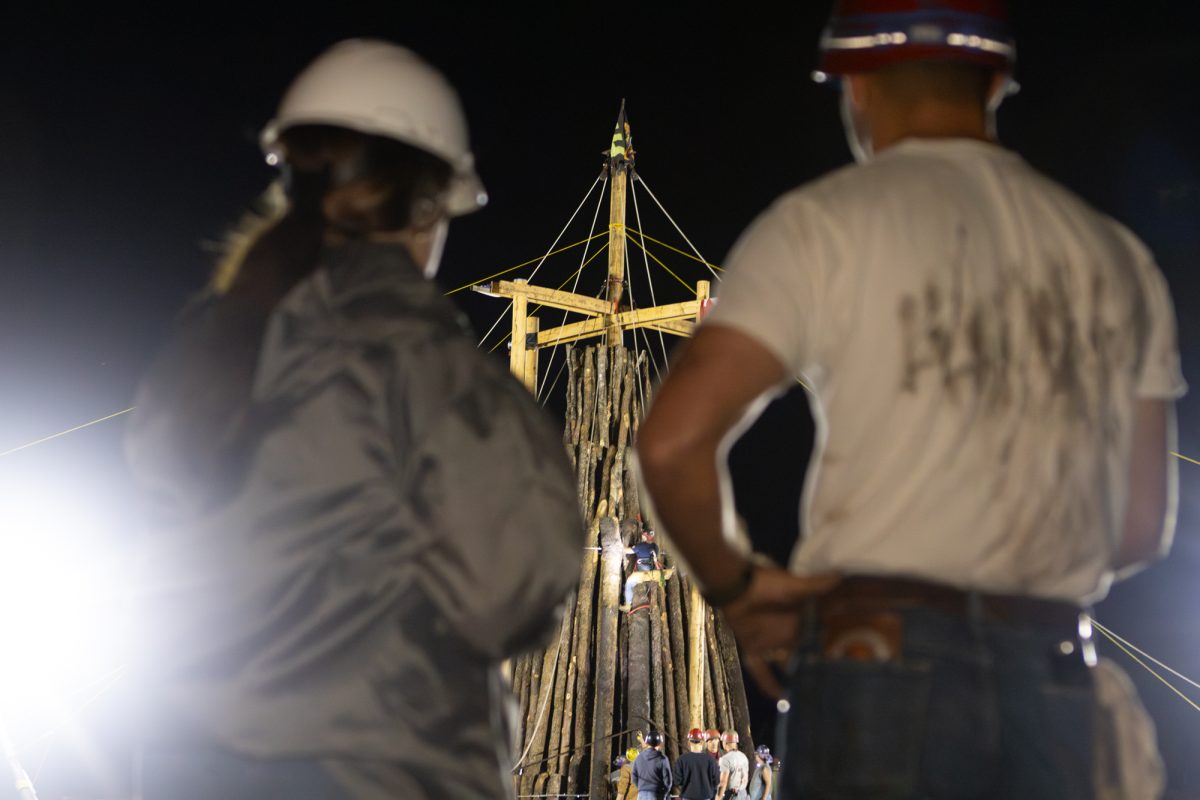Although most of Texas A&M’s coronavirus precautions are in place to protect faculty, staff and students on campus, the university has also had to keep in mind the furry friends that call Aggieland home.
To reduce risk of infection, service animals and their handlers are taking measures to ensure the pair and everyone around them are maintaining safe practices.
Biomedical sciences senior and senior trainer supervisor for Aggie Guide Dogs and Service Dogs (AGS) Kyla Lavender oversees the training and socialization of puppies, as well as the puppy selection process for the organization and their nationally recognized service dog organization partners. Lavender said although this pandemic might seem challenging for those stuck inside, the effects of COVID-19 might be hitting the service animal community a little bit harder.
“Some people of the service animal community may have a disability that causes them to have a lowered immune system,” Lavender said. “For this reason, completely online classes may become the new reality for these individuals and their animals.”
Biomedical sciences senior Chelsie Pensyl, a member of AGS since all 2017, said she has not noticed any major differences in the training process of her current service dog Dillon since the outbreak. Although a vital part of Dillon’s phase one training is how to behave in public, Pensyl said his training had to be adjusted only slightly to the current situation.
“The only difference I’ve had with training Dillon is we haven’t gone as many places as normal due to COVID-19,” Pensyl said. “We have done a lot more outside training as well to try and stay safe and away from other people.”
Although A&M has not announced any changes when it comes to service animals on campus, biomedical engineering junior Andy Gonzalez said she is taking the safety of her service dog Obi into her own hands.
“For Obi specifically I plan on bringing her a blanket so I can disinfect the area she will be in then place the blanket there so she’s not touching the disinfectant but also staying safe,” Gonzalez said. “We’re also not taking very many in-person classes, probably just one.”
According to the CDC, COVID-19 has spread from people to animals in some situations. In order to prevent this, they suggest proper sanitation of any harnesses, vests, collars or frequently used supplies, maintain a safe distance from others as much as possible, and more.
To do their part in preventing the spread between human and animal, Lavender said AGS and its members have been promoting the importance of training with distance commands.
“Some of our graduated working service dogs have been tasked with serving as the bridge between individuals to reduce person-to-person contact,” Lavender said. “For example, the dog may be told to grab a piece of paper, bag or other item from one person and then carry it to either a specific location or another individual. This allows for people to maintain the six foot social distancing that is recommended by the CDC.”
When approaching a service animal and its handler, especially to adhere to social distance guidelines, Pensyl said she suggests getting the handler’s attention first, never the dog’s.
“Ask if they feel comfortable with you approaching them,” Pensyl said. “Typically I do not mind being approached since I am just training Dillon. But I do know that most service dog handlers would prefer to just be left alone.”
Even with uncharted challenges handlers might be experiencing at the hands of COVID-19, Pensyl said service animals might just be more vital than ever.
“Service animals are crucial to people who need them, no matter what’s going on in the world,” Pensyl said. “The current situation just amplifies peoples’ need for their service dogs that help them with day-to-day life.”
COVID-19’s impact on Aggie service animals
August 17, 2020
Photo by Courtesy
Aggie service animals and their handlers are taking new precautions to continue their training as people begin to return to campus.
0
Donate to The Battalion
Your donation will support the student journalists of Texas A&M University - College Station. Your contribution will allow us to purchase equipment and cover our annual website hosting costs.



